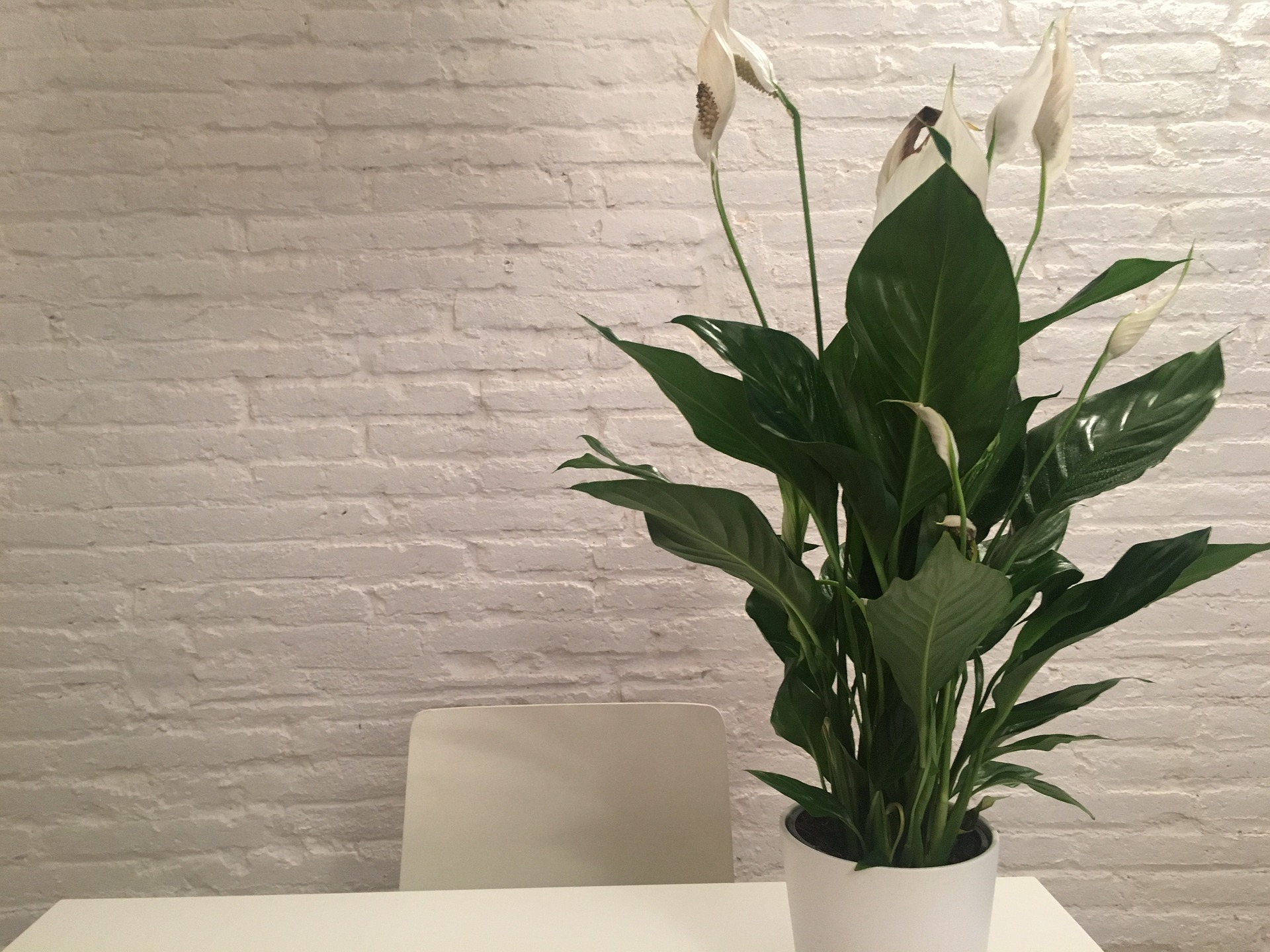
Hey all you indoor gardeners and hydroponics aficionados. Do you ever wonder what new plants to try out? As long as you’re cultivating indoors, you might as well nurture a few plants that will give some love back to you. Any of the varieties on this list will purify the air in your home by filtering out airborne pollutants. To help you out, I’ve also selected varieties that are typically difficult to kill. And for those of you who like a challenge, there’s one that requires more attention.
Peace lily
Peace lilies, also called spathiphyllum, are particularly hard to kill. If you’re known for your ability to reduce houseplants to a wilted pile of fallen leaves, then this is the plant for you. Of course, they’re also just nice to have around even if you know what you’re doing when it comes to gardening. The peace lily can neutralize a variety of toxic gases that end up in the air. Bonus: peace lilies like shade, so you don’t need any special lighting to grow them.
Variegated snake plant
A hardy plant with leaves that kind of resemble broad, flat snakes, the snake plant requires very little care. Although it prefers bright light, it usually stays alive even in low light settings. And it will be just fine if it goes without water for a little while. In addition to filtering a large number of airborne toxins, snake plants also give off oxygen at night, unlike most plants which use oxygen at night. Because of that, it’s often recommended as a bedroom plant.
Spider plant
If you’re a fan of creepy, crawly pets, like the burrowing tarantula, then this plant will tickle you. It actually forms little spider shaped flowers, called spiderettes, that dangle down from the mother plant’s leaves. The spider plant is also well-known as one of the easiest plants to care for. I highly suggest it for beginner gardeners who want a plant that sparks conversation. (What’s that crawling on me!? It’s just my houseplant.) They filter multiple common pollutants from the air and are non-toxic to pets.
Boston fern
Okay, all the other plants on this list are for beginners or those of you who have nothing to prove with your houseplants. The Boston fern, however, is your challenge plant. If you want to test out your skills at maintaining a finicky air purification system, this is the one. Boston ferns have regular fertilizer requirements that vary from season to season, and they spaz out when they don’t have enough moisture. That being said, they remove more formaldehyde from the air than any other plant on this list. And yes, formaldehyde is in your indoor air, being given off by many of the inorganic materials we use to construct objects used in our homes, like plastics and particle board.
Especially during the colder months when you’re less likely to open the windows and let some fresh air into the house, it’s beneficial to have a few plants around that can make your air healthier. We often carry exotic plants at The Tye Dyed Iguana and Indoor Cultivator, so stop in and take a look.
